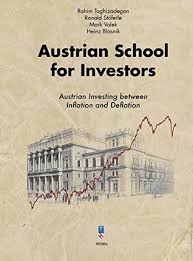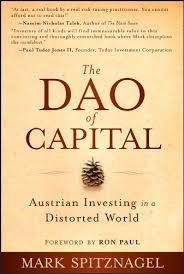The Principles of the ASE Applicable to Investing and Trading
The Austrian School of Economics (ASE) is a body of knowledge in economic thought that initially developed in 1870 in Vienna Austria. Other than the fact that it originated there, it has nothing to do with the country of Austria. Followers of the ASE have been successful at anticipating major economic events like the Great Depression, the stagflationary environment of the 1970s, the Dotcom Bubble and the Housing Bubble.

One excellent reading which explains this value proposition of using the principles of the ASE towards investing and trading is called Austrian School for Investors by Incrementum Fund Managers Ronald-Peter Stoeferle and Mark Valek and Incrementum Advisory Board Members Heinz Blasnik and Rahim Taghizadegan:
– Amazon

Another excellent reading is called The Dao of Capital by Mark Spitznagel, Founder and Chief Investment Officer of Universa Investments. A quote from the author: “What I have dubbed Austrian Investing contrasts starkly to the far more typical investing approach that only weighs current contemporaneous opportunities, one against the other, hungry for yield, blind to the changing opportunities likely to materialize around the next bend.”
– Wiley
The Austrian School of Economics (ASE) emphasizes savings and investment, with minimal debt and leverage, and maintains that policy changes which allow markets to operate freely result in economic growth and wealth creation, whereas interventionist policies are not friendly to the markets and result in economic stagnation and wealth destruction. Profit opportunities exist when these changes are anticipated and interpreted properly, and when identifying cash-flowing businesses characterized by scarcity, innovation, longevity and growth in value.
